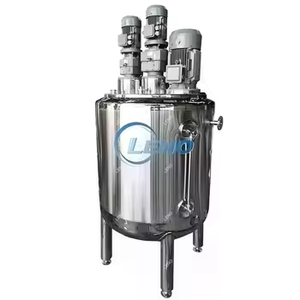Introduction to Reaction Flask
A reaction flask is an essential piece of laboratory equipment used primarily in chemical reactions, providing controlled environments for mixing, heating, and altering reactants. As a critical component in various scientific processes, a reaction flask enables researchers and chemists to conduct experiments with precision and reliability. The flask’s design allows for efficient mixing and stirring, maximizing reaction outcomes while minimizing contamination risks.
Types of Reaction Flasks
Reaction flasks come in various types, each designed to accommodate specific chemical processes and reaction conditions. Understanding these types can help you choose the right one for your needs:
- Round Bottom Flask: The most commonly used reaction flask, ideal for uniform heating and mixing of chemical substances.
- Erlenmeyer Flask: This conical flask is versatile and easy to handle, suitable for boiling and mixing, with a narrower top to reduce evaporation.
- Volumetric Flask: Designed for precise volume measurements, perfect for preparing solutions with exact concentrations.
- Distillation Flask: Specifically engineered for distillation purposes, often featuring a long neck for condensing vapors effectively.
Applications of Reaction Flask
Reaction flasks are vital in a multitude of applications across various fields, including:
- Chemical Synthesis: Used for synthesizing new chemical compounds in controlled environments, ensuring reaction fidelity.
- Pharmaceutical Development: Ensures precise formulation and testing of new drugs, contributing to the development of medical advancements.
- Research and Development: Facilitates innovative research in chemistry, biochemistry, and material science.
- Education: An indispensable tool in laboratories, helping students understand fundamental principles of chemistry through hands-on experiments.
Features and Advantages of Reaction Flask
Reaction flasks are designed with several features that enhance their functionality and efficiency in laboratory settings:
- Materials: Typically made from borosilicate glass, which offers excellent thermal resistance and chemical durability.
- Sealing Options: Many flasks come with interchangeable stoppers or vacuum ports, allowing for sealed reactions under inert atmospheres.
- Compatibility: Designed to work with a variety of laboratory apparatus, including condensers, heating mantles, and stirrers.
- Size Variability: Available in numerous sizes, facilitating both small-scale and large-scale reactions.
- Simplicity of Use: Easy to clean and maintain, minimizing downtime and enhancing workflow efficiency.
The advantages of using a reaction flask in your experiments cannot be overstated. Their reliable performance, coupled with a variety of features, makes them a go-to choice for researchers and laboratories worldwide.












































